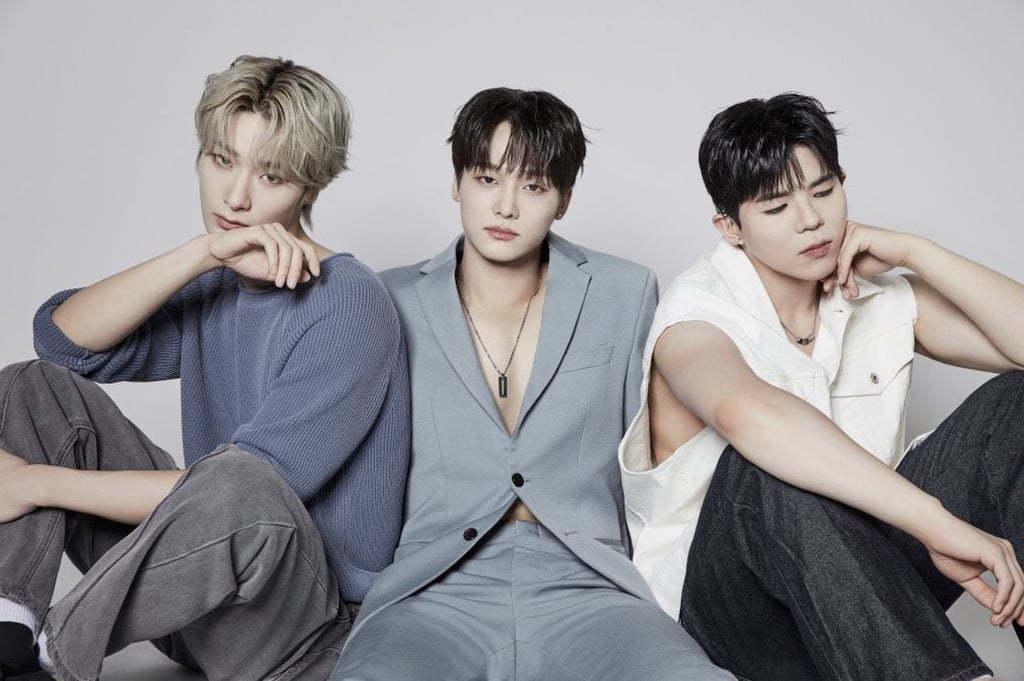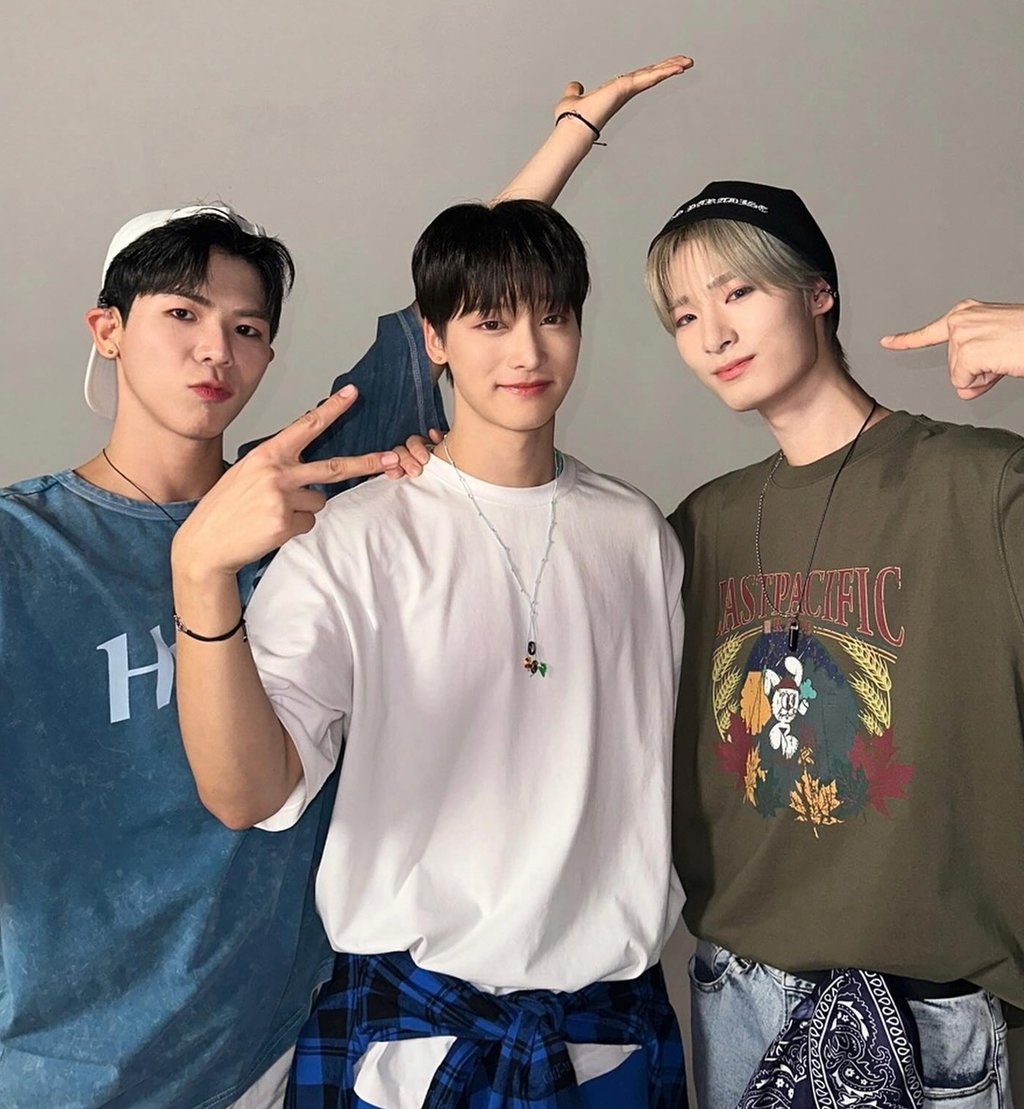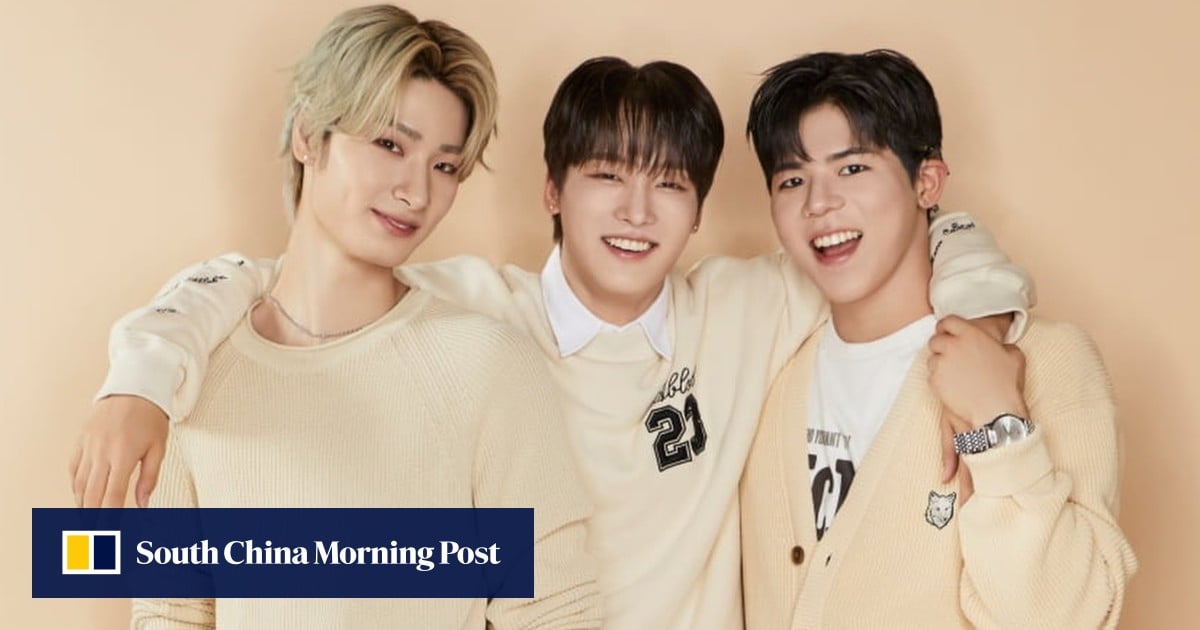When the group debuted on April 20, coinciding with Korea’s Day of People with Disabilities, many questioned whether a deaf group could thrive in the music industry.

However, Big Ocean have defied the scepticism, evolving into a fully fledged K-pop group with three singles already to their credit.
Despite their hectic schedules as idols, the members of Big Ocean enthusiastically express their happiness at the opportunity to connect with fans.
“Our fans are fully aware of our hearing difficulties,” Lee says. “During performances, they’re considerate enough to hold back their cheers so that we can hear the music better and then they give us thunderous applause as soon as the performance ends. It’s the most touching experience.
“Seeing that from our fans makes me feel like becoming an idol was the right choice.”
The members’ diverse backgrounds add to the richness of their story.
Lee, who worked as an audiologist at a university hospital, joined Park, a YouTuber actively raising awareness about hearing disabilities, and Kim, a former Paralympic alpine skier, to form Big Ocean.

Using cochlear implants, hearing aids and lip-reading to communicate, they have no trouble interacting with spoken language during our interview.
However, the members reveal that entering the world of music posed a different set of challenges.
“The three of us have different levels of hearing ability,” Kim says. “During recording, we often struggle to stay on beat because we can’t hear the rhythm of the track clearly. It’s hard to fix this on our own, so we rely on the staff’s hand signals to help us stay in sync.”
“Tuning our voices is also challenging,” Park adds. “We use an app that helps us match our pitch and then we memorise the amount of muscle effort needed to produce each note. It’s not easy to remember the muscle tension required to hit the right notes, so we focus a lot of our training on that.”
To overcome these challenges, the group also received support from artificial intelligence (AI) technology, which was designed to learn and adapt to the members’ voice data.
For choreography rehearsals, they use a smartwatch-style metronome that provides pulse feedback through vibration, along with a visual metronome on a monitor that helps maintain rhythm with light cues.
Right now, the concepts of disability and non-disability are separated, but ultimately, we want to see a world where those boundaries are erased
The world was quick to applaud the group’s efforts when their debut song “Glow” was finally released after much hard work. The group’s official YouTube channel surpassed 100,000 subscribers in less than a month, reaching 159,000 by August 28.
Their debut also attracted attention from an unexpected source: Tedros Adhanom Ghebreyesus, the director general of the World Health Organization (WHO). On his official X account, he wrote: “Congratulations for your debut as the world’s first K-pop group with hearing loss. I salute you for breaking barriers and the stigma of disabilities.”
Kim says: “I felt pride in the reactions from those around me when I became part of such a groundbreaking idol group. Friends and parents sent me messages, praising my courage for taking a path no one had travelled before.
“I especially remember my parents encouraging me by saying that, ‘You are special just by being yourselves, but the fact that you’re performing on stage makes you even more extraordinary.’ Receiving that kind of support inspires me to keep being a positive influence on others.”
K-pop fans have also showered them with praise for overcoming barriers as individuals with disabilities.
One YouTube comment on the group’s performance video read: “This is truly beyond just being a boy band: it will likely be a great source of strength for people [with hearing loss] all over the world.”
Another user, revealing their use of a hearing aid, wrote: “It’s nice to see people representing a community that is a huge part of my life.”

Despite their groundbreaking achievements, Big Ocean strive to be recognised beyond their disabilities, rather than being solely defined by the label of the first K-pop boy band with hearing loss.
“While we do carry the title of the world’s first idols with hearing loss, we don’t want our disabilities to define our group’s entire identity,” Park says.
“Like other K-pop groups, we want to carry out our activities just the same and we hope that when people first encounter us, they’ll naturally think, ‘Oh, I didn’t know they are hard of hearing. That’s cool.’”
The decision to pursue the same activities as other K-pop idols reflects the inclusive message Big Ocean ultimately aims to convey: to create a barrier-free world where people with and without disabilities are viewed equally.
“Honestly, I hope the term ‘barrier-free’ disappears altogether,” Park says.
“Right now, the concepts of disability and non-disability are separated, but ultimately, we want to see a world where those boundaries are erased and everyone is naturally and equally accepted as just people.”

